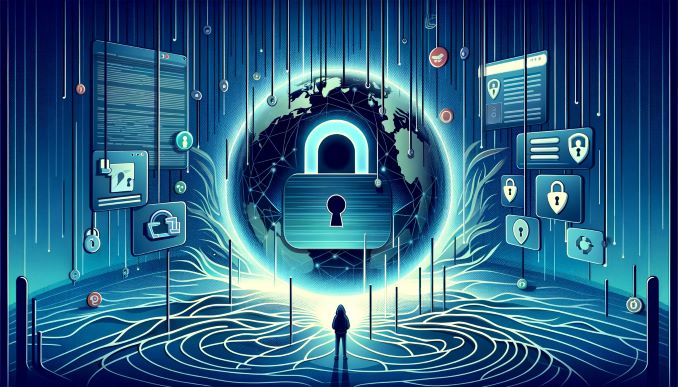The Dark Web Unveiling The Internet’s Hidden Depths

The Dark Web, shrouded in anonymity, often misunderstood, presents a complex world. In this article, we’ll delve into its intricacies, explaining access methods and necessary precautions for safe navigation.
Understanding The Dark Web
A secluded part of the broader internet ecosystem, it remains inaccessible to regular search engines. Unlike the surface web used daily for news and shopping, it offers unmatched privacy, serving both freedom advocates and cybercriminals.
Essentials for accessing The Dark Web
Specific tools are required to anonymize internet activity, with the Tor network being the primary gateway. Tor obscures user identity and location by encrypting and routing internet traffic across multiple servers. This process is crucial for maintaining anonymity, enabling users to explore safely.
Safe Navigation of The Dark Web
The initial step of accessing this layer is just the beginning. Ensuring safe exploration, given its link to illicit activities, involves strong digital hygiene: robust passwords, updated software, and vigilance against suspicious links. Understanding legal and ethical exploration aspects is also vital.
Usage Motivations Various reasons draw people here. Some seek privacy for whistleblowing or evading surveillance. Yet, illegal marketplaces also thrive, trading drugs, stolen data, and other illicit goods. Grasping both aspects is crucial for informed access.
Cryptocurrency’s Role
Cryptocurrency, particularly Bitcoin, supports transactions here due to its anonymity. While facilitating trade in The Dark Web, it’s important to recognize their broader application in legitimate digital economy transactions.
Law Enforcement Challenges
Globally, agencies tirelessly tackle its illegal activities, facing anonymity-driven challenges. Operations often require international cooperation and advanced technology for successful offender tracking and apprehension.
Demystifying The Dark Web
From accessing to safely exploring its depths, understanding this layer is essential in the digital age. While it can be a privacy and freedom tool, it also harbors illegal activities. Strong cybersecurity practices and risk awareness are crucial for anyone venturing into this hidden internet part.
Deeper Insights
For those looking further into its exploration and intricacies, numerous resources are available. These offer insights into technical, legal, and ethical aspects, providing a comprehensive exploration guide.
- The Tor Project ( https://www.torproject.org/ ): The official website for the Tor Browser, which is essential for accessing the Dark Web safely. It provides comprehensive guides on using Tor, understanding its privacy features, and contributing to the project.
- Electronic Frontier Foundation (EFF) ( https://www.eff.org/ ): EFF is a leading nonprofit organization defending civil liberties in the digital world. It offers resources on digital privacy, online security, and the legal aspects of internet use.
- Internet Archive ( https://archive.org ): While not directly related to the Dark Web, the Internet Archive is a non-profit library of millions of free books, movies, software, music, websites, and more. It’s a valuable resource for researchers and the general public interested in the evolution of digital content and internet privacy issues.
- Krebs on Security ( https://krebsonsecurity.com/ ): Run by journalist Brian Krebs, this blog covers in-depth security news, cybercrime, and investigative reports on cyber threats. It’s an excellent source for understanding the complexities of cybersecurity and the Dark Web.
- Cybersecurity & Infrastructure Security Agency (CISA) ( https://www.cisa.gov/ ): CISA leads the national effort to understand and manage cyber and physical risk to the U.S.’s critical infrastructure. The website provides resources, alerts, and guides on protecting against and responding to cyber threats.